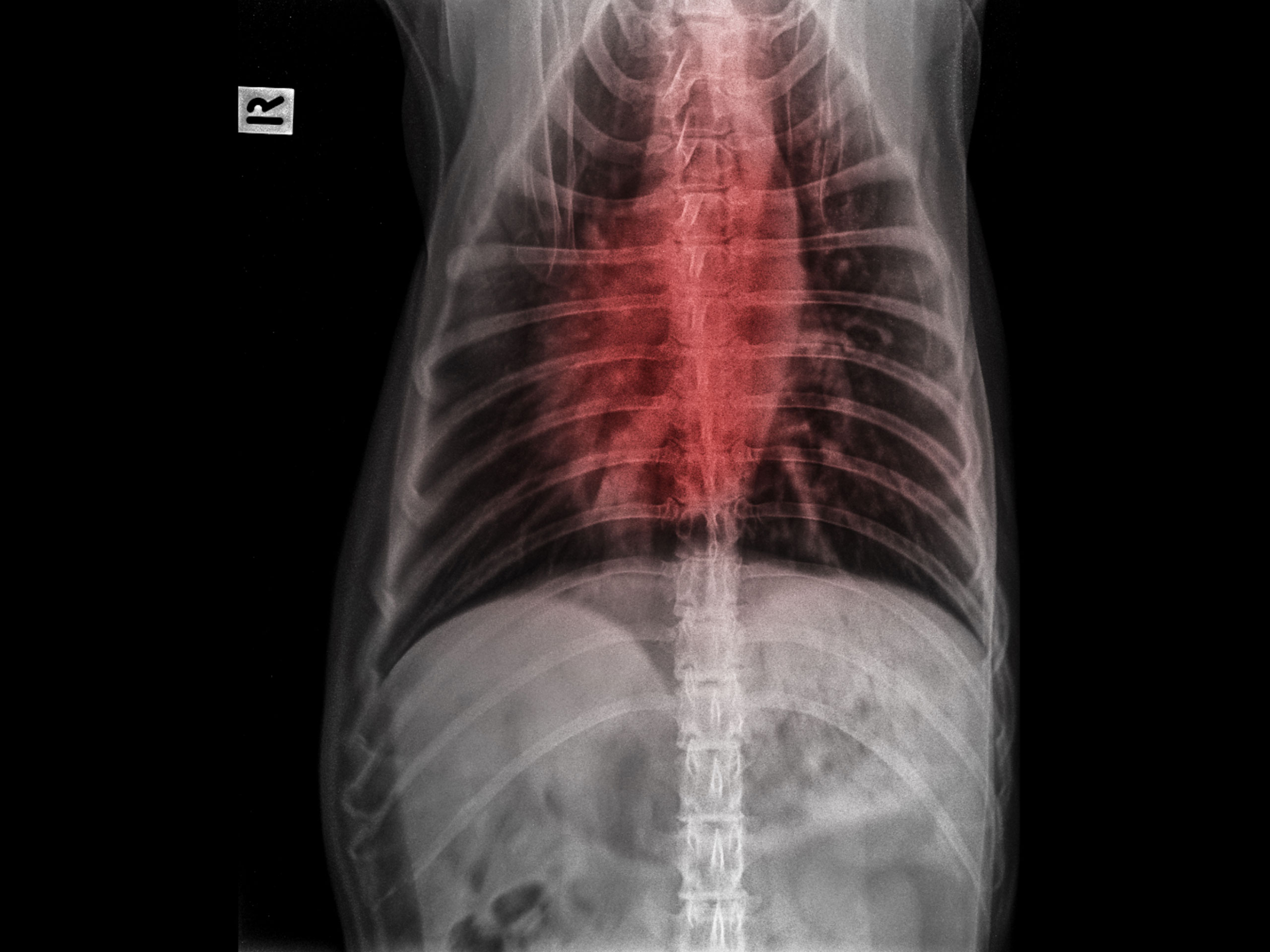When the bronchi are injured by irritants (cigarette smoke, air pollution, biochemical products of infection etc.), they respond with a healing process which is inherently inflammatory. When the injury becomes ongoing, the inflammatory/healing process also becomes ongoing and the end result involves excessive mucus production in the airways. The mucus obstructs the smaller bronchi which stimulates coughing, which in turn leads to irritation and then to inflammation and then to more mucus. A vicious cycle results.
Bronchitis can be temporary, as in short-term infectious disease such as Kennel Cough, or it can be chronic, which basically means it has been going on for a long time. To fit the definition of “chronic”, the cough must be present daily for at least a couple of months. There are many causes of ongoing cough; bronchitis is certainly not the only one. It is very important to determine whether or not a reversible underlying cause is present.
It is important to realize that there are many conditions that make dogs cough chronically including but not limited to:
-
Pneumonia
-
Tracheal Collapse
-
Bacteria infection in the Lung
-
Cancer
-
Heart Failure
-
Heartworm Infection

Symptoms
-
Gagging/coughing
-
Abnormal lung sounds (i.e., wheezing, crackles, etc.)
-
Inability to perform routine exercises
-
Bluish discoloration of the skin and mucous membranes
(cyanosis); a sign that oxygen in the blood is dangerously
diminished -
Spontaneous loss of consciousness
Diagnosis
Chest X-rays are helpful in determining the severity of the disease and to evaluate the extent of lung involvement. Dogs with chronic bronchitis may have thickened brochi or, in severe cases, collapsed lungs.
Treatment
Corticosteroids such as prednisone relieve inflammation and inhibit production of mucus. Typically a short course is used to control symptoms initially followed by a lower dose maintenance course. This helps dry up the mucus in the airways and stop the cough-irritation vicious cycle.
Mucodilators are given to ease the excretion of the mucus out of the airways.
Cough Suppressants for the cough reflex, through medication may be helpful in establishing patient comfort. On the other hand, we want our patient to be able to clear the mucus from the inflamed airways if there is an excess of mucus present.
Although, airways technically do not constrict in chronic bronchitis, it may be helpful to add on airway dilators to relax them allowing air to pass through bronchi that had previously been so small as to be occluded by mucus.
Antibiotics are only prescribed in cases where there is a strong suspicion of a concurrent infection.
